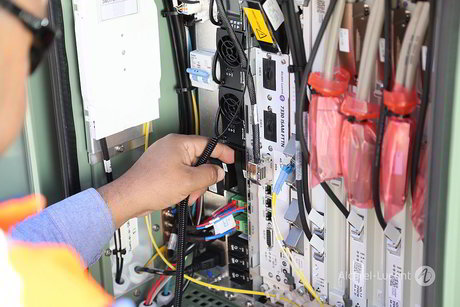Turnbull's NBN attitude cause for concern

The national broadband network (NBN) has long been flagged by government and private sector organisations as a significant driver for innovation and transformation, but concerns raised by a prominent telecommunications analyst reflect a growing tide of concern that the troubled NBN rollout is being sidelined in Prime Minister Malcolm Turnbull’s much hyped ‘ideas boom’.
That boom — announced with much fanfare this month as a $1.1bn funding package designed to boost innovation and commercialisation opportunities — will be enabled at many levels by improved broadband connectivity, but pundits zeroed in on Turnbull’s failure to even mention the $40 billion-plus NBN project during the launch.
Prominent telecommunications analyst Paul Budde — who has long commented on the NBN and its potential importance in the country’s economic future — seized on the omission as a sign that the vision of the NBN as an economic enabler had been tarnished by a recent series of revelations about the surging cost of Turnbull’s Multi-Technology Mix (MTM) version of the project.
Turnbull’s omission contradicts the opinion of Bill Morrow, the Turnbull-selected CEO of nbn — the company building the NBN — who recently referred to the project as a driver for a “seismic digital eruption”.
The magnitude of that eruption seemed to have been lost on Turnbull, who was questioned on the ABC about his failure to even mention the NBN in his cornerstone innovation policy. Turnbull fell back on well-worn policy tropes and said he “really [didn’t]” want to get bogged down discussing the NBN.
“What is worrying — and indeed could indicate that the end of the NBN as we know it is on the table — is that even after two years the PM continues to blame the previous government for his own NBN troubles,” Budde wrote in a scathing blog post. “If he believes in his version of the NBN he would have used it as a spearhead of his innovation policy... [Turnbull] still has not embraced a truly futureproof NBN, let alone taken full ownership or the project of its potential.”
Budde’s concerns were echoed by many on the back of an Australian Financial Review report that Turnbull was canvassing the potential sale of the NBN project to the private sector in 2017 for as little as $20 billion — immediately after the next election, and much earlier than previously outlined in the project’s corporate plan.
With Telstra the most likely buyer for such an infrastructure, such a sale would mean the end of the NBN as the benevolent monopoly it was designed to be by former communications minister Stephen Conroy. The NBN is currently being rolled out as a wholesale-only provider offering consistent terms to every telecommunications reseller — but a purchase by Telstra would see the newly empowered company extend its long-running monopoly back to the network it bought from the government more than a decade ago, then sold back to the government in a renegotiated NBN deal in December 2014.
Concerns about the project have escalated in recent weeks after leaked documents suggested that nbn was facing cost blowouts and would need to pay $375 million and $641 million to fix the Optus cable network and Telstra’s ageing copper network, respectively. Both networks are to be purchased by nbn and form critical parts of Turnbull’s MTM plan — which he doggedly pursued in opposition and implemented as communications minister to replace Conroy’s original fibre to the premises (FTTP) plan.
Budde, for one, has taken Turnbull’s omission as a sign that even he doesn’t believe the network will support the government’s broader innovation agenda. “The original NBN would have been a quantum leap forward, surpassing all of the existing ageing telecoms technologies,” he wrote.
But if the MTM environment is not fit for purpose in an innovation-enabled Australia, infrastructure competition could kill the NBN’s own business case — and destroy the foundations of its existence.
“It would be a crime against innovation and against the national interest,” Budde wrote, “if policies and regulations are now going to be used to stop competitors from delivering the first-class infrastructure that is clearly needed for a modern and innovation-based economy such as the one the PM envisages.”
Ever-changing NBN messaging has created strategic planning issues for local and state government bodies, which were originally welcoming of the NBN and its potential to improve the connectivity of citizens and their access to digital-government initiatives.
Most councils have outlined formal plans to help regional businesses and residents take advantage of the network when it passes them, but many are still in limbo as rollout schedules are adjusted and readjusted over time. Recent research in south-eastern Melbourne suggested the lack of NBN services across just three councils was costing 1024 jobs and $8.4m per year.
Some government bodies are tiring of waiting for the government to get its act together: the city of Rockhampton in Queensland recently outlined plans to make the laying of fibre a business-as-usual practice whenever it’s doing roadworks within the city. This fibre would create an NBN alternative that’s expected to help stimulate innovation and new opportunities for regional businesses.
Interview: Phil Zammit, Avaya
For our summer Leaders in Technology series we are discussing AI, system complexity, skills and...
From training to collaboration: how XR can transform public sector operations
Extended reality (XR) has emerged in recent years as a powerful tool for public service...
How financial automation bridges the public sector resource gap
The growing resources gap in finance and technology is a key challenge in the public sector.



